Recap:
In the introduction, I covered who Gen Z is and why it’s important that the church begin to pay closer attention to them. In Part I, Part II, Part III, and Part IV, I interviewed some professionals (a teacher, a therapist, and a guidance counselor) who have worked closely with this group for several years and were willing to offer their insights into patterns they see, values and needs they sense, and the unique traits of this group.
I then created an anonymous survey based on the interviewees’ comments and suggestions about this group. I specifically targeted Christian school students aged 11-22 (and recent Christian college graduates up to age 24). My sample size ended up at 36 respondents, which is not huge, but it was a narrowly targeted group nonetheless. Gender was considered irrelevant to this survey, but I tried to gain a racially and ethnically diverse group of respondents. (Demographical data was not collected to preserve privacy and keep things simple.)
If you are clergy or a lay leader curious about answers from the same age group in your neck of the woods, it’s very easy to create a simple, anonymous Google Form survey. That is literally all I did, here. Some of the respondents were known to me (but I have no way of knowing if they actually followed through and took the survey). Others were friends or relatives of the kids I asked. Some were children of friends. We ended up with a nice age distribution favoring late teens and early 20s—exactly the group that, statistically, will largely be leaving the church within the next five to ten years.
The results:


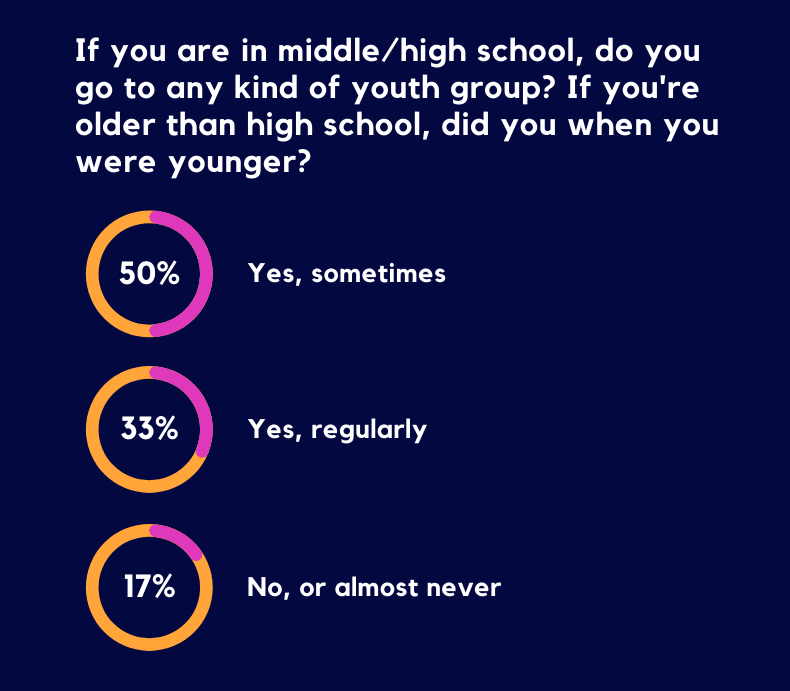
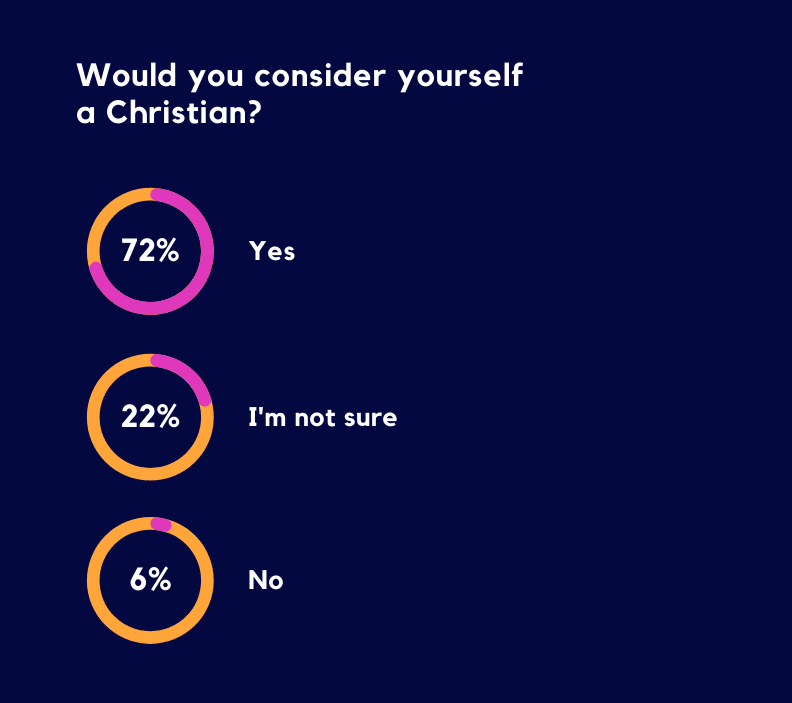
The initial demographic questions confirmed that this was the target group. A whopping 83% of these Gen Z respondents’ families go to church regularly. Youth group attendance was lower, but half still went (or go) sometimes, while a third went (or go) regularly. Still pretty high, depending on where you live. That 22% are not sure whether they are a Christian may have a lot to do with the answers that follow.
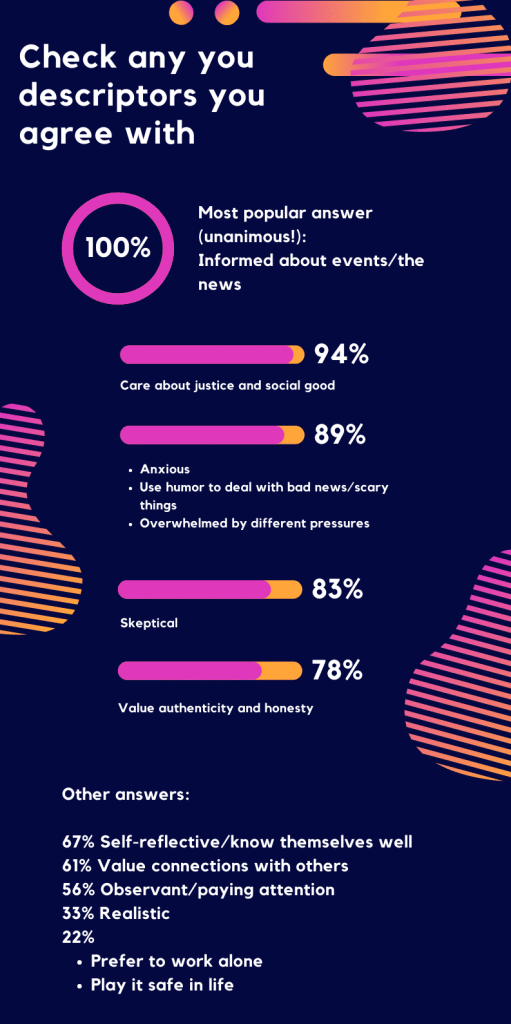
The respondents’ answers regarding their generation’s characteristics closely aligned with the comments of our three adult interviewees who work with them on a daily basis. Notably, “realistic” was not a popular answer, and neither were “prefer to work alone” or “play it safe in life.” But 100% reported being aware of the news and world events, and 94% think their generation cares about justice and social good.
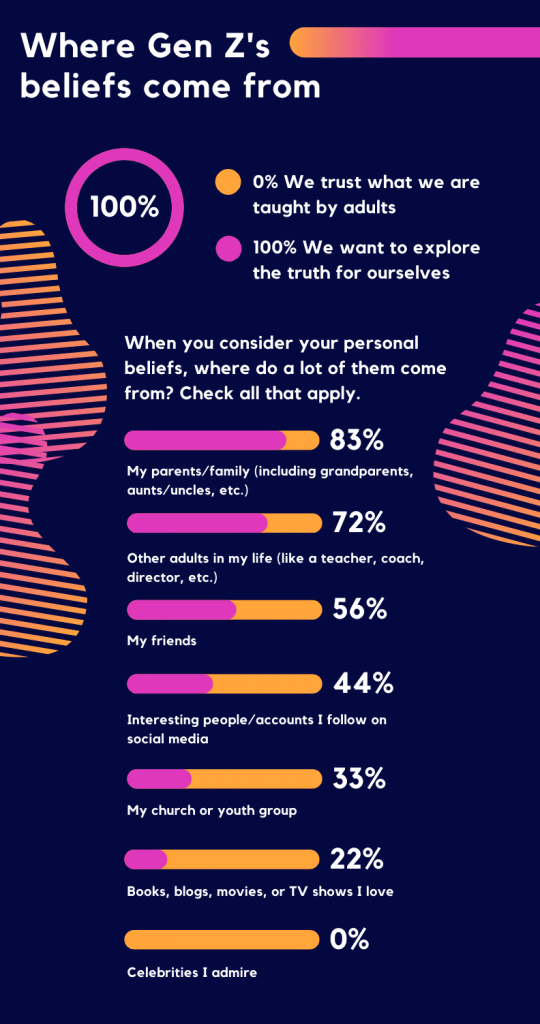
All respondents asserted that they like to explore the truth for themselves rather than simply trust what they are taught by adults. When you consider that this includes respondents as young as 11, that’s pretty noteworthy. Adults still have an important voice in their lives; 83% recognize that their beliefs come from someone influential in their family, and 72% have at least one other adult in their lives who shapes their beliefs. The percentage of respondents who answered that their friends influence their beliefs seemed somewhat low to me (as a Millennial; maybe other Millennial readers agree or disagree?), and the 44% who are influenced by social media accounts seems in line with how Gen Z gets their information.
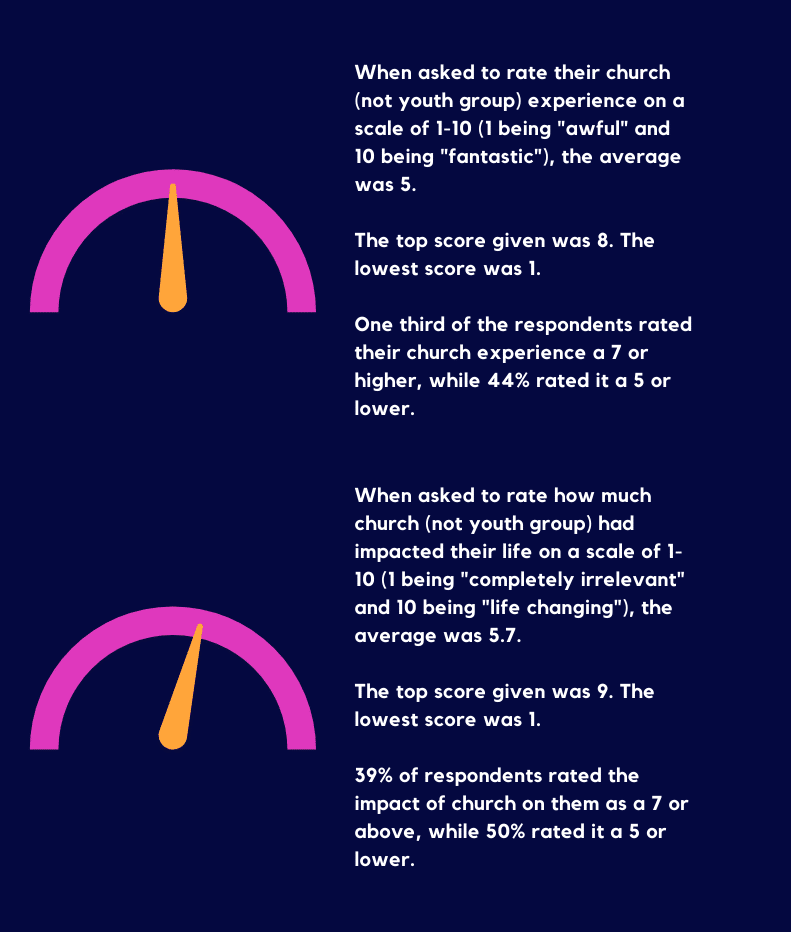
Along with “would you recommend…to a friend,” the self-reported satisfaction rating is marketing shorthand for whether a customer will repeat a purchase. Apologies if the parallel is crude, but based on this graphic representation of the respondents’ experience at their church, ambivalence reigns. Why might this be?
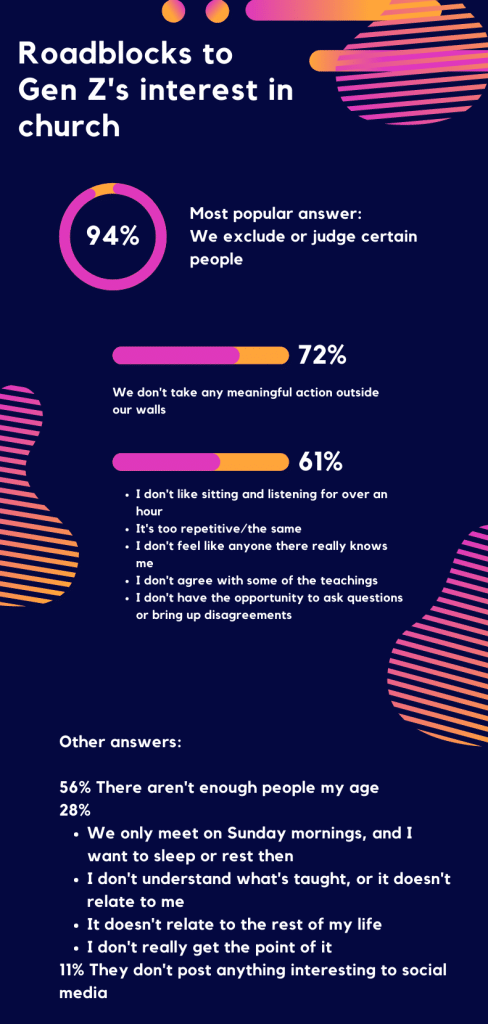
Most respondents take issue with the perceived exclusionary or judgmental posture of their church. Like it or not, that is a major reason for their dissatisfaction. They are also dissatisfied by the lack of “meaningful action outside our walls,” the format (listening without discussing or getting to ask questions, repetitiveness), and as our adult interviewees posited, they feel like no one at their church really knows them.
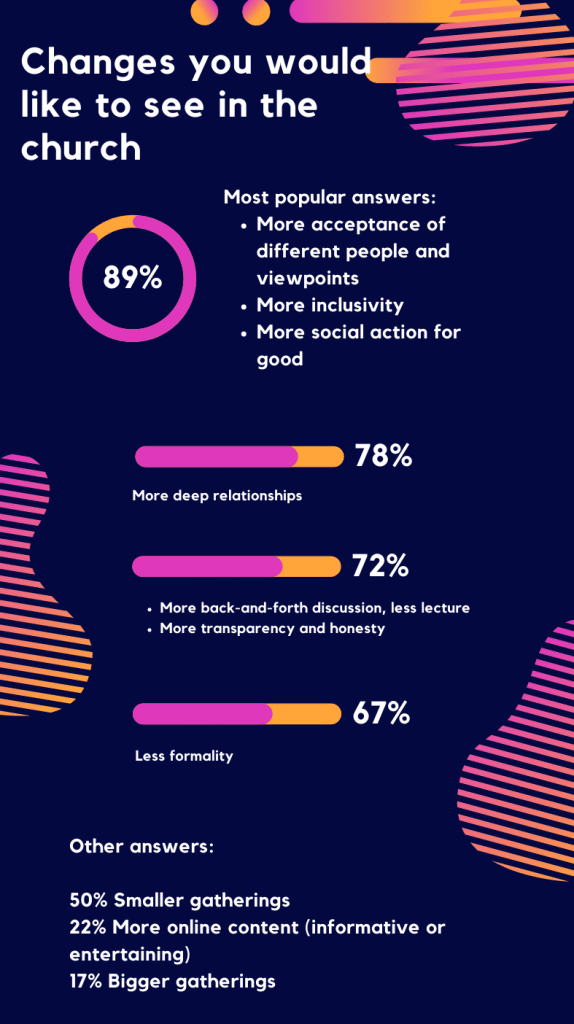
Only 22% of respondents are seeking more online content (still a significant number). The majority are looking for a table open to all, tangible good works, and deeper, more transparent relationships.
The survey included a few spots for respondents to add clarifying comments or options they thought should be included but weren’t. One respondent characterized their generation as “hostile.” Another respondent added that how they form their beliefs includes using their gut and their brain. No other comments were offered throughout.
What next?
This concludes the “Gen Z and the church” series. If this subject interests you, hopefully it’s given you some ideas to conduct your own investigation or experiments. To beat a dead horse, this massive generation—larger than the Baby Boomers—is uninterested in the average American local church as it currently exists. They are inundated with other options to spend their time and money. Far more importantly, they need spiritual guidance and support and a Christian family full of people who genuinely care.
What’s also interesting to me is that as I spoke about this project with some Gen X-ers and Baby Boomers (and certainly with Millennials), they expressed some agreement with many of the hypothetical Gen Z needs. Christians of all ages seem to want churches that do tangible good in their communities, that offer deep relationships and personal transparency, and that allow for multidirectional dialogue instead of unidirectional teaching. At no other point in human history have this many people had access to so much information and education. Church members want to participate and engage much more immersively and significantly, sharing what they know and who they are. We are none of us immune from the news of the world or the suffering in our communities. I would posit that there’s a hunger for opportunities to make a difference alongside likeminded, authentic, loving people. The local church can serve many functions, but wherever it spends its resources, it cannot continue doing the same ol’ same ol’ and expect to survive.
Reality Changing Observations:
1. Do you know any Gen Z teenagers/young adults who are not related to you? Do you think they would agree with the survey respondents? Would you be interested in hearing their thoughts?
2. What future can the church have without Gen Z?
3. Based on their answers, how is you church doing in terms of becoming a community that means something to them, and which they support and want to belong to?






